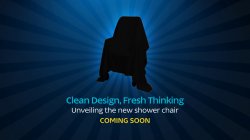
High street businesses could be turning away the custom of 1 in 5 people by not attracting disabled people, according to Government research.
This is the so-called ‘purple pound’ – the money that households with a disabled person spend. And the Department for Work & Pensions estimates that these households have a combined income of more than £200 billion after housing costs.
This means businesses are missing out on a major source of revenue because they’re not meeting the needs of disabled consumers.
It makes business sense to be accessible
There are 13.3 million disabled people in the UK, accounting for 7% of children, 18% of working-age adults and 44% of pension-age adults (Family Resources Survey 2015/2016).
20% of tourism day trips (worth £8.5 billion) were taken by people with an impairment and their travelling companions. They stayed in 18% of overnight facilities in England (worth £3.2 billion). And more than 500,000 people with a health condition or impairment visit England from abroad each year, spending £3.2 million.
However, these valuable customers are having to choose where they go and who they buy from carefully, because only a select number truly cater for their needs.
There are also large numbers of disabled people who choose not to go shopping or for a day out because there are no suitable facilities. Think of it this way – if you need a hoist to help you transfer from your wheelchair for toiletting, you need access to the right equipment to be out for more than a couple of hours.
How disabled facilities should be
The Queen Elizabeth Olympic Park is a classic example showing how we as a country can work together and get disabled facilities right.
The park was designed with help from disabled people to ensure it would be as accessible and inclusive as possible. There’s step-free access, hardstanding surfaces and Blue Badge car parking for every venue. Throughout the park, there are also Changing Places toilets, accessible changing facilities, accessible baby change facilities, induction loops and audio assistive systems.
The Olympic Park is a leading light in this regard – in part because of the scale of the project. But it’s both easy and affordable for local leisure centres, attractions, office blocks and shopping centres to boost footfall and revenue by incorporating many of these elements.
Wingham Wildlife Park in Kent is a perfect example.
The owners were developing a new toilet block and had planned to have a family bathroom. However, after receiving requests from families of disabled visitors, they decided to create a Changing Places facility instead.
They’d already installed standard Doc M sanitaryware at this point, and were able to use what they had while adding a ceiling hoist, changing table and other small items to achieve BS8300:2009 compliance. The resulting facility is one of the best in an attraction of this type.
Larkfield Leisure Centre is another. We helped them fit a pool hoist that’s easy for staff, patrons and their carers to use, but is also out of the way when not needed (since most pool users aren’t disabled).
Adaptations like this are quick to implement and generally end up paying for themselves over time.
The bigger picture
My father spent the last few years of his life in a chair, being hoisted back and forth from his bed. He loved the outdoors (he’d been part of the signals team for British Rail), but the lack of disabled facilities meant we couldn’t take him out much.
This situation is still all too common, and it’s wrapped up in larger debates we’re having as a society about care and mental health. Making it easy for disabled people to get out and about will play an important role in reducing loneliness, facilitating independence and improving general health.
And with so many easy, cost-effective adaptations available, we’re reaching the point where true accessibility is a no-brainer.
To chat about how you can boost footfall and improving accessibility, contact us on 0845 658 8411 or at sales@wealdenrehab.com.

Latest Blog Posts
Advancing safe, dignified bathing
A clinical perspective on the IndiGo² powered shower chair range

Seasonal opening times 2025/26
2025 Holiday Season Update - Our team are here for you but we will be taking a break between the 24th December and 2nd January 2025.

New Shower Chair Innovation
Experience Wealden Rehab’s new shower chair innovation at the OT Show 2025

Responsive Care Equipment Supplier Across the UK
Supporting hospitals and care providers in unsettling times ...

NAEP Conference 2025
Meeting Occupational Therapists, Commissioners and Exploring Bariatric and Paediatric Solutions

Our Seasonal opening times 2024/25
Our team are here for you but we will be taking a break between the 24th December and 2nd January 2025.



